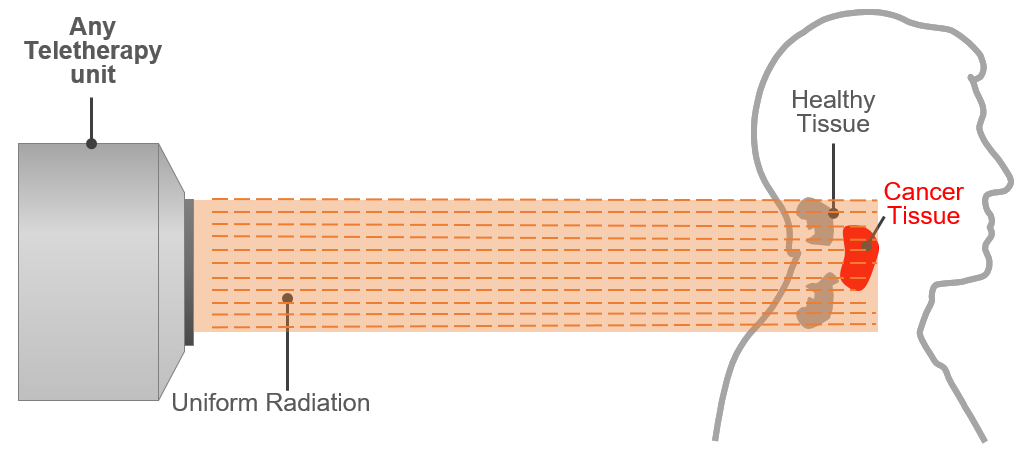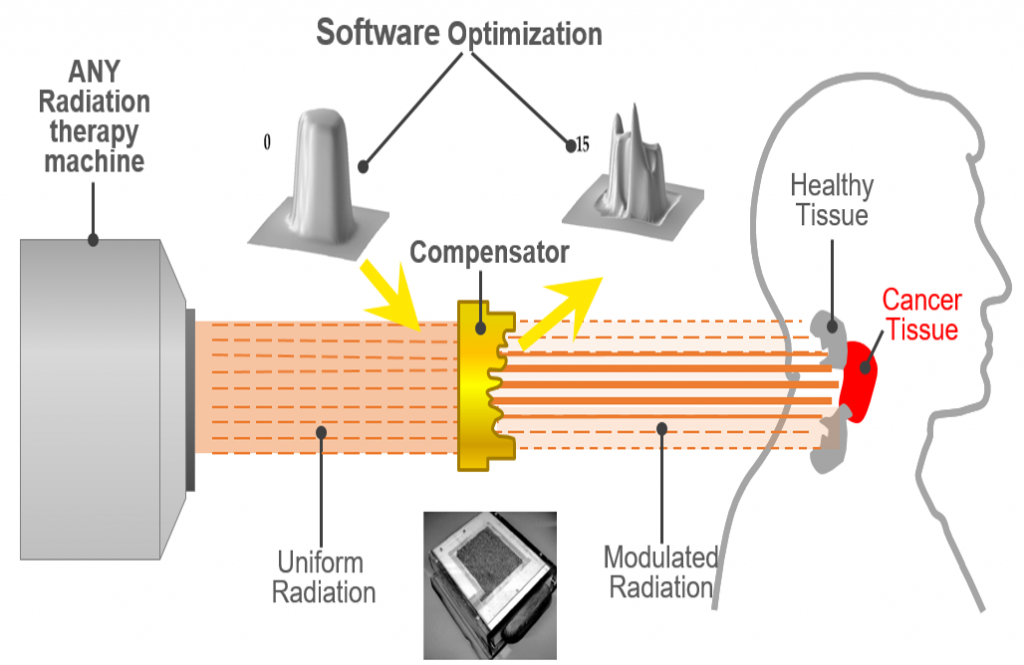UNC startup EmpowerRT offers personalized cancer care anywhere
Technology will be a game changer in the fight on cancer for developing countries, secures first test site in Zambia, Africa
Published Jan. 8, 2018
Cases of cancer continue to steadily rise across the globe, particularly in developing countries. According to Harvard’s School of Public Health, the percentage of new cases of cancer was similar for developed and developing regions 20 years ago. But today, 55 percent of new cancer cases arise in developing nations—a figure that could reach 60 percent by 2020 and 70 percent by 2050.
One early stage company at the University of North Carolina at Chapel Hill is looking to address this challenge with their unique technology solution. EmpowerRT is a new, social enterprise startup with a mission to help people in developing countries by improving cancer radiation therapy without spending millions of dollars on modern treatment technology.
55 Percent of new cancer cases arise in developing nations
1,500 patients treated by EmpowerRT technology at UNC Hospitals
Up to $3 million saved in medical technology expenses by individual cancer clinics in low- and middle-income countries
475 UNC Startups LAUNCHED Since 1958 (through June 2017)
358 Active UNC Startups, with 306 headquartered in NC
(through June 2017)
40K+ lives improved by UNC social ventures since 2013
63,914 jobs created by UNC startups, with 8,090 in NC
(as of Dec. 2016)
$10 billion in annual revenue generated by UNC Startups in FY2016
![]()
Acquire the fundamentals you need to turn your idea into a commercial startup or social venture. Get started with incubators, support services, coaching and training.
Find the resources you need to start a venture at UNC.
In many developing countries, there is a lack of resources dedicated to cancer research and treatments. Many radiotherapy clinics still rely on basic or outdated equipment and lack the funds, training and supporting infrastructure to implement modern 3D and IMRT (intensity-modulated radiation therapy) that is more effective in treating cancer with less side effects.
EmpowerRT offers clinically-proven and user-friendly software, patient-specific device fabrication knowledge, and hands-on training to enable resource-limited cancer clinics to reduce treatment toxicity similar to high-tech solutions, but at five-to-ten percent of the cost. The company’s three-prong solution of software, existing hardware and training, allows cancer clinics in low and middle-income countries to save up to $3 million in medical technology expenses.
“We want to enable developing countries to do more with what they have based on UNC experience,” says Sha Chang, EmpowerRT founder and professor in UNC’s School of Medicine’s Department of Radiation Oncology. “Most radiation therapy clinics in developing countries think they need new and expensive equipment to advance, but there is another way.”
When Chang came to UNC’s oncology department more than 20 years ago, she had the idea to develop the technology. She knew the high-tech commercial IMRT and commercial products were being developed and as an innovator and visionary, had the idea to also develop a cost effective, manual approach to benefit UNC patients in the meantime. EmpowerRT’s technology enables old machines to perform better, achieved with a simple device – a compensator – which is both recyclable and affordable. At the end of a treatment course, the compensator can be re-used.
Basic (non-personalized) radiation treatments damage both healthy and cancerous tissue

EmpowerRT's solution optimizes radiation to cancer and spares normal tissue with a simple compensator device

“Our technology is very relevant to developing countries,” says Chang. “They are where the U.S. was two decades ago. What we develop – our experience in the field – can be of great value to them.”
The company is now avidly working to register test sites around the world. After many persistent conversations, EmpowerRT is thrilled to announce Zambia Cancer Disease Hospital in Africa is their first test site. Other potential test sites include Brazil, India and Honduras or Peru.
EmpowerRT licensed from UNC the clinical software PLUNC, which was an in-house developed radiotherapy treatment planning system that was used to treat 22,000 cancer patients at UNC Hospitals and thousands more in Duke University School of Medicine and St. Jude Children’s Research Hospital. In addition, the EmpowerRT solution was used to treat 1,500 patients at UNC Hospitals. The in-house software and the EmpowerRT solution are no longer used at UNC Hospitals today as they have been replaced by modern, state-of-the-art technologies that are automated and more sophisticated.

As a startup, Empower RT continues to leverage multiple groups across campus as they continue their innovation journey, including UNC’s Kenan-Flagler Business School, CUBE, and LAUNCH Chapel Hill, where EmpowerRT is a member of Cohort 8. In addition, EmpowerRT was named to the latest class of Kickstart Commercialization Venture Award winners. The award will enable for test site implementation demonstration.
“At UNC, there is so much we develop that can really be transferred through startups, through entrepreneurship,” Chang says. “That’s a very natural channel to bring what has been developed and tested at UNC and carried to developing countries, to help them by offering feasible, low-cost solutions. I am very grateful for the tremendous encouragement and support EmpowerRT received from the department, hospital, university, my professional society and the international community.”
To extend their reach and further their mission, EmpowerRT is looking to form new partnerships with organizations like the Clinton Foundation as well as DAI, a company with expertise in global development. They are also working to form partnerships with international organizations in Brazil, Denmark and India as well.
EmpowerRT is looking to launch additional test sites throughout 2018 and aiming for ten customers by 2019. Moreover, to support their growth as an organization, they are avidly seeking additional team members – particularly at the senior management level.
EmpowerRT needs all kinds of help and support, from students interested in gaining experience in global health startups to senior management. To find out more and to follow their journey, contact Professor Sha Chang at empower.rt@gmail.com.

 | UNC-CH
| UNC-CH